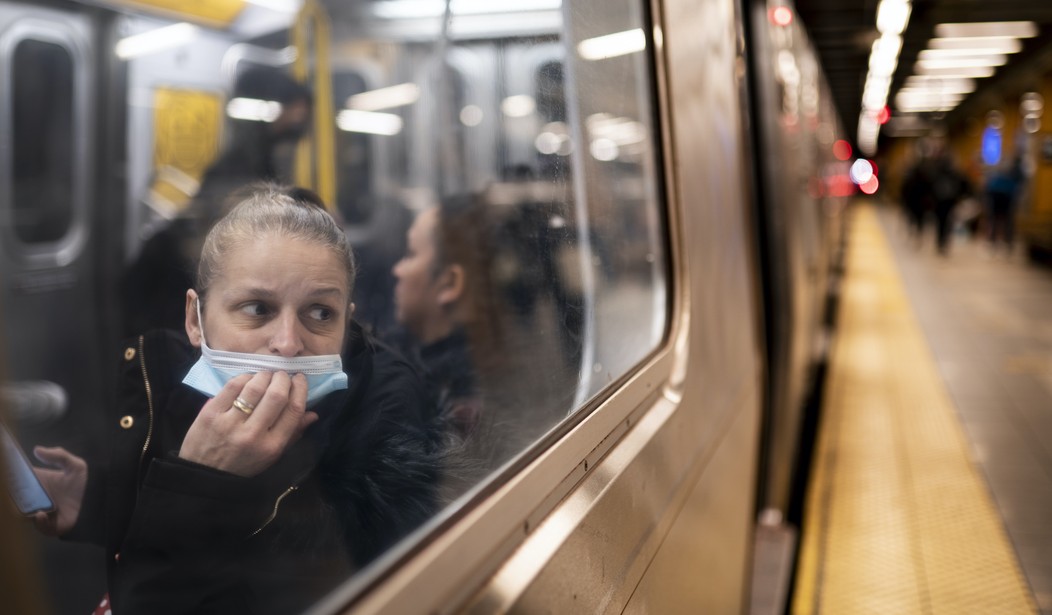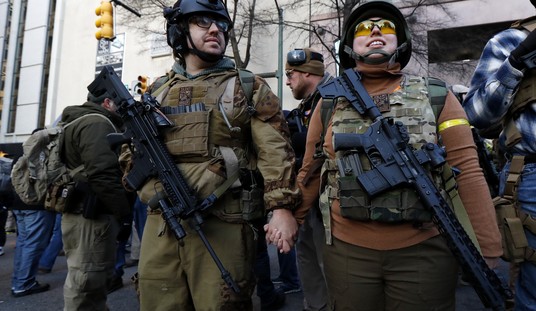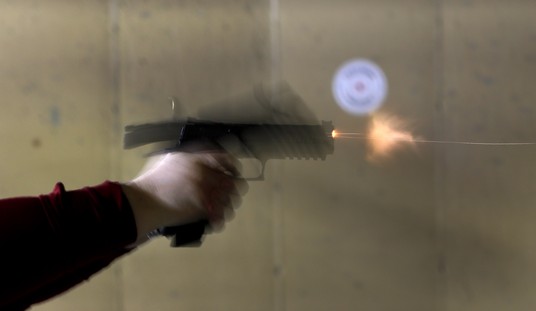A coalition of fifteen Attorneys General, all of them Democrats, have weighed in on a federal lawsuit challenging the ban on concealed carry on the Washington, D.C.-area Metro transit system. In a new amicus brief, the AGs argue that public transportation should be deemed a “sensitive place” where the right to bear arms can effectively be barred, even if by doing so governments prevent law-abiding citizens from exercising their right to bear arms in self-defense in public.
In the Supreme Court’s decision in NYSPRA v. Bruen, Justice Clarence Thomas weighed in on the issue of “sensitive places,” and while his opinion didn’t attempt provide an exhaustive list of places where lawful concealed carry can be prohibited, he made it clear that the right to bear arms in public is a fundamental component of the Second Amendment.
It’s odd, then, to argue that public transportation should be one of those areas off-limits to legally-carried arms, but the anti-gun AGs are intent on confining the right to carry to as small an area of the public sphere as possible.
The District of Columbia’s ban on carrying firearms on public transportation represents a lawful exercise of its police power. As the Supreme Court repeatedly emphasized in District of Columbia v. Heller, 554 U.S. 570 (2008), McDonald v. City of Chicago, 561 U.S. 742 (2010), and New York State Rifle & Pistol Association, Inc. v. Bruen, 142 S. Ct. 2111 (2022), the Second Amendment permits States to enact a variety of regulations to combat the problem of gun violence, including “solutions to social problems that suit local needs and values.” McDonald, 561 U.S. at 785.
This local flexibility is an essential element of the federalist system, and it ensures that firearm regulations appropriately and effectively address the specific circumstances in each State. The District’s public transportation regulation fits comfortably within this framework and aligns with laws enacted by other States. Indeed, at least ten States have a statute regulating firearms in public transportation, while additional measures apply under local rules and regulations. These measures vary, and collectively they demonstrate that the regulation of firearms on public transit constitutes precisely the kind of tailored solution to a local problem that the Second Amendment authorizes.
The States’ power to implement such measures is particularly important in the context of public transportation, where firearms can disrupt the operation of transit systems and pose a heightened risk of injury and death. In many States, public transportation is critical to the public good: It is a central way employees commute, children get to and from school, and people with disabilities can participate fully in their communities. The plaintiffs’ request to enjoin the District’s firearms prohibition would not only disrupt the operation of the District’s public transportation system but also endanger the lives of many individuals who depend on public transportation.
As the AGs point out, public transportation is the central way that many folks, particularly in population-rich cities, go about their daily lives. That isn’t an argument in favor of barring concealed carry, however. Quite the opposite. Those commuters, disabled individuals, and all other adults reliant on public transportation shouldn’t have to give up their right to bear arms just because they use a bus or a light rail system to get them from Point A to Point B.
Furthermore, Metro’s prohibition on carrying firearms hasn’t stopped criminals from illegally toting guns on the transit system’s property. Earlier this month a man was arrested after firing off a round inside a Metro train station and injuring a woman, while armed robberies are becoming increasingly common on Chicago’s train and bus system (Illinois’ ban on concealed carry on public transportation is the subject of another recently filed lawsuit).
SCOTUS has declared that law-abiding citizens possess a “general right to publicly carry arms for self-defense”, and based on the constitutional test laid out by the justices in Bruen, unless the Democratic AGs can point to evidence of similar prohibitions at the time of the ratification of the Second and Fourteenth Amendments, they really don’t have much of an argument. Did they come up with anything useful to their cause?
Not really. In fact, beyond pointing out that many of the states represented by the AGs have prohibited concealed carry on public transportation networks, the anti-gun brief doesn’t offer any historical analogues to the current carry bans. Instead, Illinois Attorney General Kwame Raoul, who’s the main author of the amicus brief, tries to argue that “the District’s prohibition is a permissible variation of a larger tradition of States regulating firearms in certain locations.”
The problem with that argument is that the Supreme Court has already closed the door on overly broad “sensitive places” in Bruen, where it chided the state of New York for trying to make the argument that most of the state should be considered a sensitive location off-limits to legally bearing arms.
In their view, “sensitive places” where the government may lawfully disarm law-abiding citizens include all “places where people typically congregate and where law-enforcement and other public-safety professionals are presumptively available.” Brief for Respondents 34. It is true that people sometimes congregate in “sensitive places,” and it is likewise true that law enforcement professionals are usually presumptively available in those locations. But expanding the category of “sensitive places” simply to all places of public congregation that are not isolated from law enforcement defines the category of “sensitive places” far too broadly. Respondents’ argument would in effect exempt cities from the Second Amendment and would eviscerate the general right to publicly carry arms for self-defense that we discuss in detail below.
Banning the lawful carrying of firearms on public transportation sure sounds like eviscerating the general right to publicly carry arms for self-defense to me, especially for those who depend on it to navigate through their lives. What these anti-gun AGs are really arguing is that those folks don’t matter, or at least that they’d be better off disarmed and defenseless rather than able to exercise their constitutionally protected right to armed self defense without fear of incarceration. It’s a really weak argument, and one that doesn’t stand up well to the test outlined in Bruen. Of course that doesn’t guarantee that the federal judge considering whether to block enforcement of Metro’s gun ban will see it that way as well, but if this is the best that the anti-gunners can come up with I feel pretty good about our chances if and when this case gets to SCOTUS.









